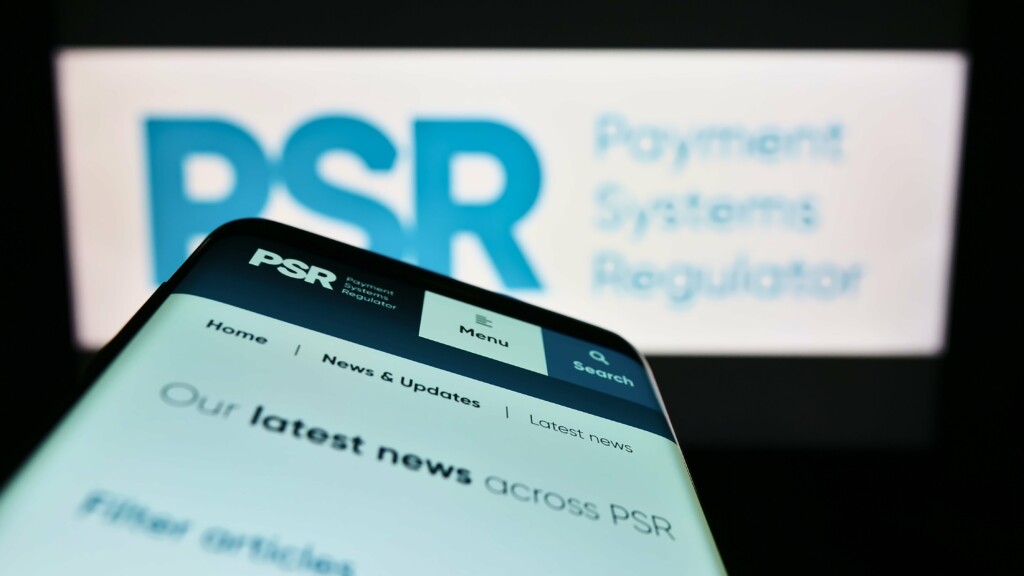Betrayal And The Destruction Of Trust In Scam Victims
Scam Victim Psychology & Recovery
Authors:
• Vianey Gonzalez B.Sc(Psych) – Licensed Psychologist Specialty in Crime Victim Trauma Therapy, Neuropsychologist, Certified Deception Professional, Psychology Advisory Panel & Director of the Society of Citizens Against Relationship Scams Inc.
• Tim McGuinness, Ph.D. – Anthropologist, Scientist, Director of the Society of Citizens Against Relationship Scams Inc.
Article Abstract
Romance scams inflict profound emotional and psychological harm, far exceeding mere financial loss. This paper delves into the neurochemical basis of trust formation and the devastating repercussions when that trust is violently betrayed. We explore the brain regions, hormones, and neurotransmitters involved in building intimacy, and the cascade of negative effects triggered by its shattering.
This article delves into the profound emotional and psychological repercussions experienced by victims of romance scams. It investigates the intricate neural mechanisms involved in trust formation and relationship bonding, highlighting the devastating consequences when these bonds are shattered.
The betrayal disrupts brain pathways associated with trust-building hormones like oxytocin and pleasure-inducing neurotransmitters such as serotonin and dopamine. Victims endure profound emotional trauma, triggering anxiety, depression, and social withdrawal. Understanding the neurological underpinnings illuminates the depth of harm inflicted, emphasizing the urgent need for comprehensive support and therapeutic interventions to aid victims’ recovery and healing.
Exploring the Devastating Impact of Romance Scams: Betrayal of Trust and Neurological Consequences
The profound betrayal of trust resulting from romance or relationship scams inflicts deep emotional and psychological wounds upon scam victims, significantly disrupting their well-being. These scams exploit the intricacies of human trust and the brain’s mechanisms involved in forming and maintaining relationships with devastating effect.
The brain intricately constructs trust through a network involving several regions, notably the prefrontal cortex, amygdala, and hippocampus. This process is facilitated by neurotransmitters and hormones, particularly oxytocin, serotonin, and dopamine. Oxytocin, recognized for fostering social bonds, plays a pivotal role in trust-building, while serotonin and dopamine contribute to feelings of happiness, satisfaction, and reinforcement of positive interactions.
Building Trust and the Brain
When individuals form strong relationship bonds, their brains release oxytocin and dopamine, fostering a sense of closeness and pleasure. However, in the aftermath of discovering a deceitful relationship scam, these neural pathways are disrupted, triggering emotional turmoil. Scam victims experience a profound betrayal of trust, causing distress, anger, grief, trauma, and a pervasive sense of loss.
The impact on mental health is significant, often leading to anxiety, depression, and feelings of isolation. Victims endure a shattered self-image, questioning their judgment and the authenticity of future relationships. The trauma of betrayal can impair their ability to trust others, leading to social withdrawal and difficulty in forming new connections.
The Ventral Tegmental Area (VTA) of the Brain and Trust
Human brains crave connection. To facilitate this, a complex neurochemical orchestra plays the prelude to trust. The ventral tegmental area (VTA), plays a management role of the reward system, releases dopamine, igniting a euphoric glow when people interact with someone we like. Oxytocin, nicknamed the “love hormone,” secreted by the hypothalamus, deepens bonding and emotional attachment. Vasopressin, another social neuropeptide, strengthens loyalty and commitment. These chemicals weave a tapestry of intimacy, drawing people closer.
The ventral tegmental area (VTA) is a crucial part of the brain’s reward system and is involved in the processing of pleasurable experiences, motivation, and social interactions, including trust. Research suggests that the VTA, as part of the brain’s mesolimbic reward pathway, is associated with the release of dopamine, a neurotransmitter linked to feelings of pleasure and reward. Studies have shown that when individuals engage in trusting behaviors or when trust is reciprocated, there is increased activity in the VTA and subsequent release of dopamine. This activation of the VTA and the release of dopamine contribute to the positive feelings associated with trust and social bonding.
Also, the VTA is interconnected with brain regions involved in social cognition and decision-making, such as the prefrontal cortex and the amygdala. These connections enable the VTA to integrate social information and contribute to the assessment of trustworthiness in others, influencing subsequent decisions regarding trust.
The VTA is implicated in the neural processes underlying the development of trust by mediating the rewarding aspects of social interactions and contributing to the evaluation of trustworthiness in others through its involvement in the brain’s reward and social cognition networks.
VTA & the Striatum – Working together to build and reward Trust
The ventral tegmental area (VTA) and the striatum are interconnected regions of the brain that work together and play integral roles in bonding, reward processing, and the development of trust.
- The VTA sends dopamine-containing neurons to various brain regions, including the striatum. The striatum is involved in reward processing, motivation, and decision-making. It receives inputs, including dopamine, from the VTA.
- Both the VTA and the striatum are part of the brain’s reward circuitry and contribute to the experience of reward and pleasure. When individuals bond or engage in trusting relationships, these areas are activated, releasing dopamine and contributing to the positive feelings associated with social interactions.
- Research suggests that the connection between the VTA and the striatum is involved in evaluating trustworthiness in others. As individuals assess trust in social interactions, these regions, along with other brain areas, contribute to the decision-making process by integrating social information and assessing the risk and reward associated with trusting behaviors.
- The VTA-striatum connection reinforces social behaviors that lead to positive outcomes, such as trusting relationships. Dopamine released from the VTA into the striatum reinforces and strengthens behaviors associated with positive social interactions, contributing to the development and maintenance of trust.
Learn more about the Striatum here: Striatum – Psychology of Scams 2023 (scamsnow.com)
When Trust is Destroyed or Betrayed
When trust is betrayed or broken, especially in significant relationships or social contexts, it can result in profound emotional distress and trauma. The brain’s response to broken trust involves several neural mechanisms, and the experience can evoke a range of significant emotional and psychological reactions.
- Emotional Response: Broken or betrayed trust often triggers emotions such as betrayal, anger, hurt, sadness, and a profound sense of disappointment. These emotions are processed in various brain regions, including the amygdala (associated with emotions) and the prefrontal cortex (involved in decision-making and emotional regulation).
- Stress Response: The perception of betrayal or broken trust can activate the brain’s stress response system, including the release of stress hormones like cortisol. Chronic stress resulting from broken trust can impact the hippocampus (involved in memory,) actually causing it to physically shrink, and other brain regions, affecting cognitive function and emotional regulation.
- Impact on Reward Pathways: Trust violations can disrupt the brain’s reward pathways, particularly involving the ventral striatum and the ventral tegmental area (VTA). When trust is betrayed, the brain’s reward system, responsible for pleasurable experiences and social bonding, becomes significantly dysregulated, leading to reduced activation in response to social stimuli. This dysregulation can last from hours to days to weeks to months depending on the individual.
- Trust Re-evaluation: The brain engages in cognitive processing to re-evaluate all trustworthiness in light of the betrayal. This involves the prefrontal cortex, which is responsible for decision-making and social cognition. Broken trust might alter present and future perceptions of trust, making individuals more cautious or skeptical in similar situations. It can also serve to destroy otherwise stable and trustworthy relationships.
- Impact on Relationships: Broken trust in close relationships can damage neural pathways associated with attachment and bonding, affecting subsequent interactions and the ability to form new trust bonds.
Overall, the brain’s response to broken trust involves a complex interplay of emotional, cognitive, and stress-related neural processes. The experience of betrayal can lead to persistent emotional distress (trauma,) alterations in cognitive perceptions of trust, and changes in brain function related to reward processing and stress regulation. Therapeutic interventions and support are often necessary to help individuals navigate the emotional and psychological consequences of broken trust and rebuild a sense of security and trust in relationships.
What is the Emotion we call Betrayal?
Betrayal is a complex and deeply impactful emotion involving feelings of hurt, disappointment, and a breach of trust caused by someone close or trusted. It’s characterized by the realization that someone has violated a significant trust or loyalty, often resulting in a profound sense of disillusionment, disbelief, or shock.
The emotional experience of betrayal can encompass a range of feelings, including:
- Hurt and Pain: The emotional pain of betrayal can be intense, akin to a deep wound, leading to feelings of anguish, sadness, or heartache.
- Disappointment and Disillusionment: Discovering betrayal often brings a sense of disappointment in the betrayer or in the situation. It may shatter previously held beliefs or perceptions about the betrayer and the relationship.
- Anger and Resentment: Betrayal can evoke feelings of anger, bitterness, or resentment towards the person who caused the betrayal. This anger might stem from feelings of injustice or being wronged.
- Loss of Trust: The fundamental element of betrayal is the erosion of trust. Victims of betrayal often struggle to trust others, fearing a recurrence of similar hurtful experiences.
- Vulnerability and Insecurity: Betrayal can leave individuals feeling vulnerable and insecure in relationships. It can create doubts about one’s judgment and ability to discern trustworthiness in others.
- Grief and Disbelief: Processing the betrayal might involve stages of grief, including denial, bargaining, and acceptance. It can be challenging to accept the reality of betrayal and move towards healing.
- Difficulty in Letting Go: Overcoming betrayal can be a prolonged process. Individuals might grapple with lingering feelings and find it challenging to forgive or move past the betrayal.
In essence, betrayal is a deeply distressing emotion that disrupts the foundation of trust and undermines the integrity of relationships. It encompasses a range of emotions, each contributing to the complex and multifaceted experience of being betrayed.
Broken Trust and Physical Health
The emotional and psychological repercussions extend to physical health, manifesting in sleep disturbances, appetite changes, and stress-related ailments. The aftermath of such betrayal demands comprehensive support, including therapeutic interventions focusing on rebuilding trust, restoring self-esteem, and processing the trauma experienced.
The physiological effects of broken trust and betrayal on scam victims can be significant and pervasive, impacting various bodily systems and overall well-being.
- Stress Response and Cortisol Levels: Betrayal triggers the body’s stress response, leading to the release of stress hormones like cortisol. Prolonged stress can dysregulate cortisol levels, impacting sleep patterns, immune function, and increasing the risk of anxiety and depression.
- Sleep Disturbances: Broken trust can disrupt sleep patterns, leading to difficulties falling asleep or staying asleep. Sleep disturbances further exacerbate stress levels and affect cognitive function and emotional regulation.
- Digestive and Cardiovascular Health: Chronic stress resulting from broken trust can impact digestive health, leading to gastrointestinal issues like indigestion or irritable bowel syndrome (IBS). Additionally, stress can contribute to cardiovascular problems, increasing the risk of hypertension or heart-related conditions.
- Immune System Suppression: Prolonged stress weakens the immune system, making scam victims more susceptible to illnesses and infections. This weakened immunity can prolong recovery from physical ailments.
- Brain Function and Cognitive Impact: Betrayal can impair cognitive function, affecting attention, memory, and decision-making abilities. Stress-induced changes in the brain’s structure and function might hinder focus and lead to difficulties in processing information or making sound judgments.
- Chronic Pain and Tension: Stress resulting from broken trust can manifest physically as chronic pain, muscle tension, headaches, or other somatic complaints, exacerbating discomfort and reducing overall well-being.
- Hormonal Imbalance: Betrayal can disrupt hormonal balance, affecting reproductive hormones and potentially impacting fertility or libido. Imbalances in hormones like oxytocin and dopamine, associated with social bonding and pleasure, might further exacerbate feelings of isolation or disconnection.
- Mental Health Impact: The physiological effects of broken trust often contribute to mental health issues such as anxiety, depression, and post-traumatic stress disorder (PTSD). Scam victims might experience persistent feelings of fear, hypervigilance, or emotional numbness.
Addressing the physiological effects of broken trust and betrayal requires comprehensive support, including interventions to manage stress, promote relaxation, and restore bodily equilibrium. Seeking professional help, engaging in stress-reducing activities, and prioritizing self-care can aid in mitigating the physiological impact and promoting overall healing and recovery for scam victims.
Recovering from Betrayal of Trust for Scam Victims
Scam Victims recovering from the effects of broken trust resulting from scams can be challenging, but several steps can help scam victims begin to reduce the impact on their well-being and minimize the cerebral effects:
- Seek Support and Validation: Connect with trusted friends, family, or support groups. Sharing experiences and feelings with understanding individuals can provide validation and alleviate the emotional burden. The learn about SCARS and other support service providers visit support.AgainstScams.org
- Professional Counseling or Therapy: Engage in therapy or counseling with professionals experienced in trauma recovery. Therapeutic interventions, such as cognitive-behavioral therapy (CBT) or trauma-focused therapy, can help process emotions, reframe thoughts, and build coping strategies. Explore counseling or trauma therapy options at counseling.AgainstScams.org
- Self-Care and Stress Management: Practice self-care techniques, including mindfulness, meditation, exercise, and hobbies. Managing stress through relaxation techniques can mitigate the impact on brain function and reduce the release of stress hormones.
- Educate and Empower: Educate yourself about scams and manipulation tactics to regain a sense of control and prevent future victimization. Understanding how scams work can empower victims and improve their ability to assess trustworthiness in future interactions.
- Rebuild Supportive Networks: Foster relationships with trustworthy individuals. Building positive connections and nurturing supportive networks can aid in restoring trust in others over time. But also, avoid toxic relationships that can erode self-confidence and trust.
- Set Boundaries and Take Time: Establish boundaries in relationships and interactions. Take the necessary time to heal and rebuild trust gradually. Rushing into new relationships or situations might increase vulnerability.
- Focus on Positive Activities: Engage in activities that bring joy and fulfillment. Pursuing hobbies, volunteering, or learning new skills can redirect focus from negative experiences and promote positive emotions. These can also help scam victims reestablish trust in themselves too.
- Financial and Legal Support: Seek guidance from financial advisors or legal professionals if the scam involved monetary losses. Taking steps to address financial repercussions can alleviate stress and create a sense of control. But be careful to avoid impulsive decisions about money recovery.
- Practice Forgiveness (if beneficial): Consider forgiving oneself and the scammer. Forgiveness, if appropriate and beneficial for personal healing, can release emotional distress and facilitate the process of moving forward.
- Patience and Self-Compassion: Healing from the effects of broken trust takes time. Practice self-compassion, be patient with the recovery process, and acknowledge progress made, no matter how small.
By implementing these strategies and seeking appropriate support, scam victims can gradually reduce the impact of broken trust, mitigate cerebral effects, and embark on a path toward recovery, healing, and regaining a sense of trust in themselves and others.
Summary
In summary, the destruction of a strong relationship bond due to romance scams inflicts profound emotional and psychological wounds, disrupting neural pathways associated with trust and pleasure. Understanding the brain’s mechanisms behind trust formation underscores the magnitude of the betrayal’s impact on victims’ mental and physical well-being, necessitating holistic support and therapeutic interventions to aid in their recovery and restoration.
Just remember One Thing!
Just as the scam can destroy the victim’s trust in others, it can also have a similar effect on others trusting the victim. Family especially, can see the victim’s actions as a betrayal too! That is why it is important to share information about these crimes with family and friends so that they do not feel betrayed by the victim when the scam was not their fault.
Please Rate This Article
Please Leave Us Your Comment
Also, tell us of any topics we might have missed.
Leave a Reply
Thank you for your comment. You may receive an email to follow up. We never share your data with marketers.
-/ 30 /-
What do you think about this?
Please share your thoughts in a comment above!
More:
- Scam Victim Stress – The Psychological, Cerebral, and Physiological Effects – 2024 (scamsnow.com)
- PTSD And Complex PTSD – The Difference Between Them – 2023 (scamsnow.com)
- What Really Are Vulnerabilities That Lead To Scams? (scamsnow.com)
- Scam Victim Resiliency – Why It Is So Much Worse After The Scam (scamsnow.com)
- SCARS 5 Coping Techniques For Traumatized Scam Victims – 2023 (scamsnow.com)
- Scam Victims: Applying Boundaries When Compassion Is Required Instead – 2023 (scamsnow.com)
- Toxic Self-Narratives That Feeds Depression in Scam Victims 2023 (scamsnow.com)
SCARS Resources:
- For New Victims of Relationship Scams newvictim.AgainstScams.org
- Subscribe to SCARS Newsletter newsletter.againstscams.org
- Sign up for SCARS professional support & recovery groups, visit support.AgainstScams.org
- Find competent trauma counselors or therapists, visit counseling.AgainstScams.org
- Become a SCARS Member and get free counseling benefits, visit membership.AgainstScams.org
- Report each and every crime, learn how to at reporting.AgainstScams.org
- Learn more about Scams & Scammers at RomanceScamsNOW.com and ScamsNOW.com
- Global Cyber Alliance ACT Cybersecurity Tool Website: Actionable Cybersecurity Tools (ACT) (globalcyberalliance.org)
- Self-Help Books for Scam Victims are at shop.AgainstScams.org
- Donate to SCARS and help us help others at donate.AgainstScams.org
- Worldwide Crisis Hotlines: International Suicide Hotlines – OpenCounseling : OpenCounseling
- Campaign To End Scam Victim Blaming – 2024 (scamsnow.com)
-/ 30 /-
What do you think about this?
Please share your thoughts in a comment below!
More ScamsNOW.com Articles
-/ 30 /-
What do you think about this?
Please share your thoughts in a comment above!
SCARS LINKS: AgainstScams.org RomanceScamsNOW.com ContraEstafas.org ScammerPhotos.com Anyscam.com ScamsNOW.com
reporting.AgainstScams.org support.AgainstScams.org membership.AgainstScams.org donate.AgainstScams.org shop.AgainstScams.org
youtube.AgainstScams.org linkedin.AgainstScams.org facebook.AgainstScams.org
ARTICLE RATING
TABLE OF CONTENTS
CATEGORIES
MOST POPULAR COMMENTED ARTICLES
POPULAR ARTICLES
U.S. & Canada Suicide Lifeline 988
![NavyLogo@4x-81[1]](https://scamsnow.com/wp-content/uploads/2025/04/NavyLogo@4x-811.png)
ARTICLE META
WHAT PEOPLE ARE TALKING ABOUT LATEST SITE COMMENTS
See Comments for this Article at the Bottom of the Page
on Aren’t We All The Same? Aren’t We All Just Meat-Robots? An essay on Humanity by Tim McGuinness, Ph.D. – 2025: “excelente!!! la claridad y la profundidad del análisis son realmente impresionantes. Me aportó mucho leerlo. totalmente de acuerdo entre la…” Jul 16, 11:17
on Savior Syndrome And The Negative Consequences To Them And Other Scam Victims – 2023: “We must heal ourselves before trying to help or heal others. It is easy to get caught up in the…” Jul 16, 11:13
on Anger & Self-Radicalization – Recovery Psychology 2023: “Anger can be useful but most often it is destructive on the individual, their family and friends. I like that…” Jul 16, 10:59
on Residual Fear In Scam Victims – 2024 [UPDATED 2025]: “Thank you for another fantastic SCARS article! I have felt some fear lately, that has caused me to feel tense…” Jul 16, 10:10
on Living in the Invisible Safety Bubble – 2025: “Enlightening, thought provoking, and another SCARS article that gives me pause. Recovery is a process and takes time. In a…” Jul 16, 07:46
on Living in the Invisible Safety Bubble – 2025: “We have too many kinds of scams in Japan. Recently, there are impersonation scam of “fake Cardinal account” gathering fraud…” Jul 16, 07:27
on Motte and Bailey – A Cognitive Pattern & Defense Mechanism that Inhibits Honest Acceptance – 2025: “Important information for reflection for any survivor : -to what extent the Motte & Bailey method is present / still…” Jul 16, 07:21
on Arts and Crafts Can Significantly Aid in Recovery for Scam Victims – 2025: “Right after the scam, I didn’t want to do anything. I felt defeated and ashamed—as if I had betrayed both…” Jul 16, 00:01
on The Fallacy of Fallacies & Living in the Real World – Error in Reasoning that Makes an Opinion Seem Valid – 2025: “I didn’t know about fallacies and cognitive biases until I enrolled in the Survivor’s School. When I learned about them,…” Jul 15, 23:40
on Motivational Denial – Recovery Psychology – 2023: “I agree with this article about some motivational material Looking at motivational material is not a totally bad thing but…” Jul 15, 12:25
on Living in the Invisible Safety Bubble – 2025: “I thought this was a brilliant article….lots to think about now.” Jul 15, 09:39
on Arts and Crafts Can Significantly Aid in Recovery for Scam Victims – 2025: “I did not realize that things I like doing very much—knitting or sudoku—were so helpful in my recovery process. The…” Jul 14, 11:28
on Projection And Scam Victims: “The moment I realized I had a financial loss due to a scam I realized that I felt shame, guilt,…” Jul 13, 19:12
on Japanese Legend of Tears – When There Are No Words – 2025: “After discovering the fraud, the pain was enormous. I shed oceans of tears, but I always tried to do it…” Jul 13, 10:50
on The SCARS Institute Scam Victim Recovery Timeline – 2025: “Wow. I umm experienced some of the later curves. I have been bouncing back and forth between asking myself why…” Jul 11, 00:01
on Transference And Emotional Danger After The Scam – 2024: “Thank you for the kind but firm reminder that the person in the stolen profile photo has their own life.…” Jul 9, 01:26
on ‘Mental Defeat’ – The Unique Condition Of Giving Up – 2024: “Thank you for another great article. I can see from this article that mental defeat would be debilitating to a…” Jul 9, 00:49
on Trust: Romance Scams Betrayal And Scam Victims – 2024: “This provided valuable insight that I can identify with” Jul 8, 16:44
on A Scam Victim in Extreme Distress – Stopping the Pain – 2024: “Your trust issues are very understandable. We are very sorry this happened to you. We suggest that you contact an…” Jul 8, 14:42
on A Scam Victim in Extreme Distress – Stopping the Pain – 2024: “My online counselors advised me to check myself in. I went to the hospital because I was suicidal. After I…” Jul 8, 13:44
Important Information for New Scam Victims
Please visit www.ScamVictimsSupport.org – a SCARS Website for New Scam Victims & Sextortion Victims
SCARS Institute now offers a free recovery program at www.SCARSeducation.org
Please visit www.ScamPsychology.org – to more fully understand the psychological concepts involved in scams and scam victim recovery
If you are looking for local trauma counselors, please visit counseling.AgainstScams.org
If you need to speak with someone now, you can dial 988 or find phone numbers for crisis hotlines all around the world here: www.opencounseling.com/suicide-hotlines
Statement About Victim Blaming
Some of our articles discuss various aspects of victims. This is both about better understanding victims (the science of victimology) and their behaviors and psychology. This helps us to educate victims/survivors about why these crimes happened and not to blame themselves, better develop recovery programs, and help victims avoid scams in the future. At times, this may sound like blaming the victim, but it does not blame scam victims; we are simply explaining the hows and whys of the experience victims have.
These articles, about the Psychology of Scams or Victim Psychology – meaning that all humans have psychological or cognitive characteristics in common that can either be exploited or work against us – help us all to understand the unique challenges victims face before, during, and after scams, fraud, or cybercrimes. These sometimes talk about some of the vulnerabilities the scammers exploit. Victims rarely have control of them or are even aware of them, until something like a scam happens, and then they can learn how their mind works and how to overcome these mechanisms.
Articles like these help victims and others understand these processes and how to help prevent them from being exploited again or to help them recover more easily by understanding their post-scam behaviors. Learn more about the Psychology of Scams at www.ScamPsychology.org
SCARS INSTITUTE RESOURCES:
If You Have Been Victimized By A Scam Or Cybercrime
♦ If you are a victim of scams, go to www.ScamVictimsSupport.org for real knowledge and help
♦ Enroll in SCARS Scam Survivor’s School now at www.SCARSeducation.org
♦ To report criminals, visit https://reporting.AgainstScams.org – we will NEVER give your data to money recovery companies like some do!
♦ Follow us and find our podcasts, webinars, and helpful videos on YouTube: https://www.youtube.com/@RomancescamsNowcom
♦ Learn about the Psychology of Scams at www.ScamPsychology.org
♦ Dig deeper into the reality of scams, fraud, and cybercrime at www.ScamsNOW.com and www.RomanceScamsNOW.com
♦ Scam Survivor’s Stories: www.ScamSurvivorStories.org
♦ For Scam Victim Advocates visit www.ScamVictimsAdvocates.org
♦ See more scammer photos on www.ScammerPhotos.com
You can also find the SCARS Institute on Facebook, Instagram, X, LinkedIn, and TruthSocial
Psychology Disclaimer:
All articles about psychology and the human brain on this website are for information & education only
The information provided in this and other SCARS articles are intended for educational and self-help purposes only and should not be construed as a substitute for professional therapy or counseling.
Note about Mindfulness: Mindfulness practices have the potential to create psychological distress for some individuals. Please consult a mental health professional or experienced meditation instructor for guidance should you encounter difficulties.
While any self-help techniques outlined herein may be beneficial for scam victims seeking to recover from their experience and move towards recovery, it is important to consult with a qualified mental health professional before initiating any course of action. Each individual’s experience and needs are unique, and what works for one person may not be suitable for another.
Additionally, any approach may not be appropriate for individuals with certain pre-existing mental health conditions or trauma histories. It is advisable to seek guidance from a licensed therapist or counselor who can provide personalized support, guidance, and treatment tailored to your specific needs.
If you are experiencing significant distress or emotional difficulties related to a scam or other traumatic event, please consult your doctor or mental health provider for appropriate care and support.
Also read our SCARS Institute Statement about Professional Care for Scam Victims – click here
If you are in crisis, feeling desperate, or in despair, please call 988 or your local crisis hotline.
More ScamsNOW.com Articles
A Question of Trust
At the SCARS Institute, we invite you to do your own research on the topics we speak about and publish. Our team investigates the subject being discussed, especially when it comes to understanding the scam victims-survivors’ experience. You can do Google searches, but in many cases, you will have to wade through scientific papers and studies. However, remember that biases and perspectives matter and influence the outcome. Regardless, we encourage you to explore these topics as thoroughly as you can for your own awareness.















![scars-institute[1]](https://scamsnow.com/wp-content/uploads/2025/04/scars-institute1.png)
![niprc1.png1_-150×1501-1[1]](https://scamsnow.com/wp-content/uploads/2025/04/niprc1.png1_-150x1501-11.webp)

This provided valuable insight that I can identify with
It is important to practice self-care during a process of recovery from the end of the scam, the betrayal experienced and the subsequent wading through of the impact. For many weeks I feel I have been treading water. In early December when I applied for the Scam Survivor School, I waited on pins and needles for notification I was accepted. I was worried and concerned and feeling I could not trust myself especially when fear was added into the mix. I continued my yoga classes and little by little I started to relax. I had to continue to work because now I have the added financial stress. The weeks before Christmas hurt. I had no money for presents. I made the decision for debt resolution. Those weeks I could barely respond to my husband – but he stood by me! I am so grateful for him! January is now over – I feel I’m beginning to relax more. I have prayed for forgiveness of myself and I have forgiven the scammer(s). I have prayed that God intervenes in their lives and sets them on a path of service to others. It will be as God wills. I’m still recovering, still learning, still some days continuing to forgive myself while on other days I wonder if I will ever be complete again. Thank you SCARS for the necessary truths of these articles. They hurt but they are teaching me about what happened, what happened to my mind, why there are some things I can’t remember and for teaching me it was not my fault, I am not alone – I AM WORTHY.
After having been through this process, for me I can say the further i research the angrier I get, these people must all have a narcissistic personality disorder, antisocial personality disorder, and psychopaths, to say nothing of greedy.
I had no idea this could mess up your mind and psychology and physiology the way it does and the way I have experienced it.
Now that you understand how seriously it can affect you, why don’t you allow others to help you properly. You can sign up for our free services at https://support.AgainstScams.org
I was cautious with trust before the scam (evidently not enough). After the scam ended, I was devastated. It will take me a while to process and heal. To entertain the idea of trust in someone…I’ll revisit this idea in a year or two, maybe. I have forgiven myself and learned to let go of my feelings for the criminal, who might as well be a ghost to me. For now I am doing the hard work to help me heal properly through therapy, self-care and supportive friends and family. I learn to take one day at a time and i am grateful for each new day.
I always thought it could be a scam, but was heartbroken and felt extreme disappointment when I realized it was all fake. I am looking forward to all positive benefits of being in love and to put my full trust into someone again. This seems out of reach right now, but I have hope for the future.
So important to understand the chemistry of the brain, something I had no clue. I am more prepared, to even forgive myself, by understanding what happened with my brain during the scam. Thanks for this amazing article